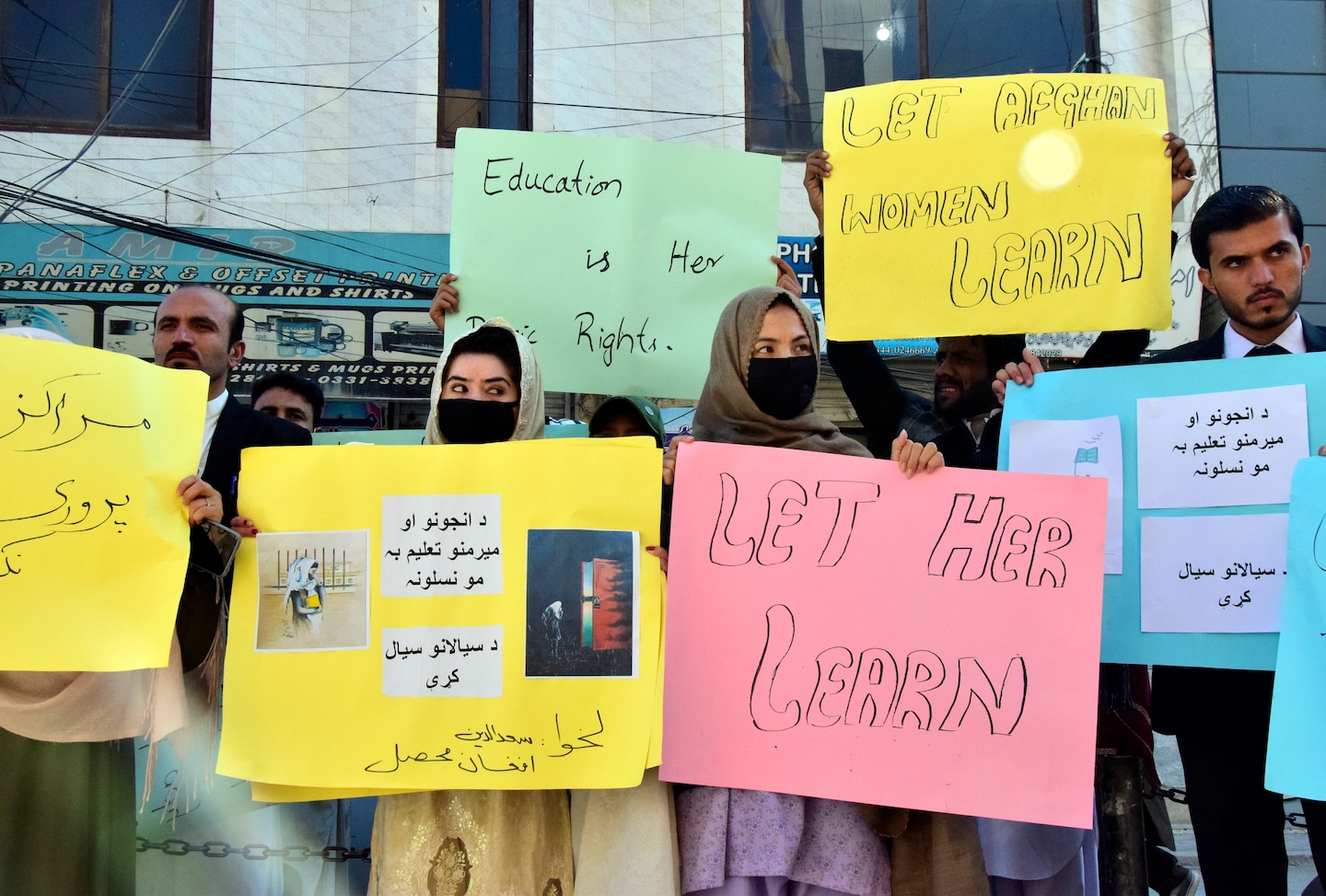The ministry warned that any international organization that does not comply with the new ban will have its work permit revoked.
The ministry said the decision was made after “serious complaints” that women working for nongovernmental organizations were not observing conservative Islamic dress. Earlier this year the Taliban ordered all Afghan women to wear head-to-toe coverings in public.
The move comes as Afghanistan faces a dire humanitarian crisis, with near-universal poverty and more than two-thirds of Afghans expected to need humanitarian aid in 2023. International NGOs have played a critical role in providing basic assistance and keeping Afghanistan’s health care system afloat, particularly after the Taliban took power last year. Afghan and foreign women have continued to work with these organizations since the Taliban takeover, and are often uniquely positioned to provide aid to women in the deeply conservative country.
Saturday’s announcement comes just days after the Taliban banned Afghan women from attending university, a decision that harms thousands of women nationwide, constricting their role in the workplace at a time when Afghanistan is already struggling economically.
One Afghan woman working for an international organization in Kabul said she burst into tears when she heard the news, calling it “shocking and disappointing.”
“This is like losing our hopes,” she said. “We don’t have the opportunity to work — I am speechless.”
She said she received an email from the human resources department at her organization, instructing her to work from home until further notice. She said she feels “lucky” to still be able to work at all, for now — even though it means she is forced to rely on internet via her mobile phone and deal with the Afghan capital’s frequent electricity cuts. At the office, she had a generator and WiFi.
The woman, who spoke on the condition of anonymity for fear of reprisals, said she is the main breadwinner in her family — supporting her elderly parents and her husband, who is just finishing school. She also covers the educational expenses of one of her young nephews. “I cannot even imagine” losing that income, she said.
The United Nations said Saturday it is “profoundly concerned” by the order and would seek clarity from Taliban officials. “Any such order would violate the most fundamental rights of women, as well as be a clear breach of humanitarian principles,” the United Nations Office for the Coordination of Humanitarian Affairs said in a statement.
“The U.N. in Afghanistan and its partners condemn the reported order and remind the de facto authorities that taking away the free will of women to choose their own fate, disempowering and excluding them systematically from all aspects of public and political life takes the country backward, jeopardizing efforts for any meaningful peace or stability in the country,” the statement added.
Ramiz Alakbarov, the U.N. secretary general’s deputy special representative for Afghanistan, called the order “a clear breach of humanitarian principles.”
He said U.N. offices had not received the letter from Taliban officials outlining the order, so it is unclear whether the new rule will apply to female employees of the United Nations. Regardless, the ban will impact U.N. projects, he said, since agencies rely on NGOs to implement many of their programs.
“Attending to the needs cannot be done without equal participation of women and men,” he said.
Female aid workers are vital in delivering badly needed aid, he said, since “you cannot send male staff to assess the needs of the households and to speak to women.”
Alakbarov said the United Nations will try to convince the de facto authorities to change course, making clear that if women are not allowed to work, “we will not be able to assist.”
Amnesty International called the new order “yet another deplorable attempt to erase women from the political, social and economic spaces,” in a tweet.
CARE International, which has worked in Afghanistan since 1961, suspended its operations on Saturday “until there is further clarity on the decision and its impact,” according to Melissa Cornet, the organization’s humanitarian advocacy adviser for Afghanistan. Representatives from the United Nations and international NGOs will hold an emergency meeting Sunday to plan a coordinated response, she said.
“This decision will prevent women aid workers from reaching women and girls in need” and from providing “lifesaving aid to a population already facing life-threatening levels of hunger,” Cornet said.
The announcement did not specify whether the ban applies to foreign women working for NGOs, but previous restrictions have applied only to Afghan women.
Parker reported from Washington.


